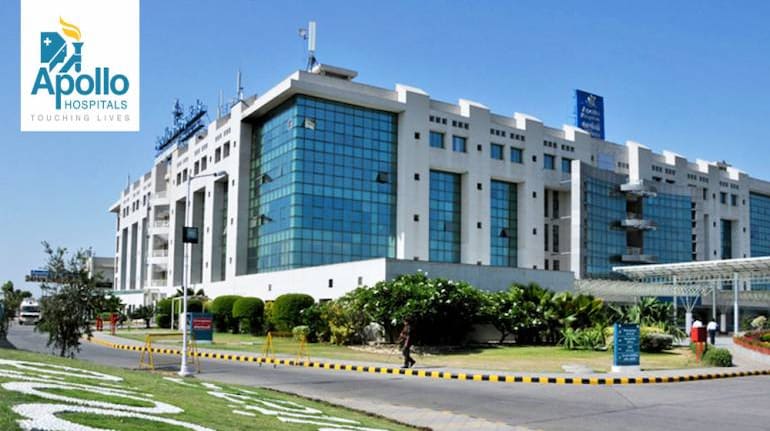
Apollo Hospitals, India's largest private healthcare provider on March 26 said it has allotted 250 beds for isolation of COVID-19 positive patients and is ready to scale-up to 500 beds as and when required.
The company said its infrastructure would help to give advanced care to over 2,000 COVID-19 patients a month.
It would soon be launching a programme to create medical rooms in hotels and hostels with light medical supervision for quarantine.
These medical rooms will be rolled out in the following cities – Chennai, Mumbai, Hyderabad, Kolkata, Bengaluru and Delhi, starting with approximately 50 in each city, going up by 50 rooms every three days, to reach an eventual target of 5,000 rooms, the company said.
"This would address the situation where over 50 percent of the cases need only isolation and paracetamol,” the company said.
Through this, the company expects to help over 10,000-15,000 patients in a month and prevent over 50 lakh infections.
Isolation is prescribed to restrict the movement of sick persons to help stop the spread of disease and quarantine is used to separate and restrict the movement of persons who may have been exposed to COVID-19 to see if they become ill.
Apollo on March 26 launched a programme called 'Apollo Kavach' that uses the group's strengths across hospitals, diagnostics, pharmacies and telemedicine in the fight against Covid-19.
"Our experience over the last 36 years, the process and protocols; expertise and infrastructure across the group, will be put to use in tackling COVID-19," said Prathap Reddy, Chairman, Apollo Hospitals.
The company has dedicated a portion of over 1,000 ventilators in its network to treat Covid-19 patients.
"Apollo has an adequate supply of ventilators, but with PPE gear for all the staff," said Preetha Reddy, Executive Vice-Chairperson.
"Mathematical model suggests that 80 percent recover and another 20 percent need some extra help. Less than 5 percent would need ventilator support. A lot of the ventilators are reserved permanently for treating COVID-19 patients," Reddy added.
In Chennai - Apollo's flagship hospital has dedicated an entire block, with ICUs having trained staff with personal protection equipment (PPE) and is considering such dedicated blocks across its network hospitals.
Apollo operates 70 hospitals across India with a total bed capacity of 10,167 beds.
Online consultations
Apollo said around 2,000 doctors are available for teleconsultations with people seeking medical advice.
They are seeing a surge in the number of people using online consults.
The company launched a mobile app partnering with telecom provider Airtel to help people do self-assessment for COVID-19. Apollo said they will soon extend the service in six regional languages.
Based on the risk level, people are guided to contact the certified help center.
Apollo said added over six million people have already gone through the screening on the Apollo 24X7 app and website. The company uses the data to generate heat maps which will help in finding out where the disease is spreading.
Diagnostic ramp-up
On the diagnostic front, Apollo has government approval for five labs to conduct tests and is in the process of getting approvals for its other labs. Soon, 17 labs will start operating to test patients.
"There will be provision for home collection of samples as well as drive-through testing. In-hospital testing will be discouraged except for inpatients," said Shobana Kamineni, Executive Vice Chairperson of Apollo Hospitals
Kamineni said dedicated fever clinics are being set up to screen people.
"People who qualify under the criteria for tests would enter via the drive-through, make the payment as per the government recommended charges and then be tested," she added.
The government has fixed the price for testing at Rs 4500.
Apollo Hospital said the testing kits are "super expensive" and will not have any room for margins.
Rising pharmacy footfalls
Apollo Pharmacy, the country's largest retail pharmacy chain with 3800 stores across 18 states said it is seeing unprecedented footfall.
"We used to have an average footfall of 450,000 at Apollo Pharmacy on a daily basis, We have seen 1,700,000 footfall," Kamineni said.
Kamineni said their stores were thronged by people across India asking for anti-malarial hydroxychloroquine drug, as they learnt the drug can be used as prophylaxis to prevent COVID-19 infection.
Kamineni added that availability of medicines isn't going to be a problem as pharma companies have assured no shortages.
"We have geared up on home delivery capabilities," Shobana Kamineni," Kamineni said.
Apollo Pharmacy plans to double the customers it serves from 500,000 to 1 million on a daily basis if required, the company said.
Tough times
Apollo Hospitals said the private healthcare is going through tough times and need government support at this crucial hour.
"Hospital industry is going through trying times. There has been a deep fall in OPD volumes and planned surgeries. We might see a total crash of the system itself. We need basic support (from the government) on power, electricity, rentals and cost of capital," Preetha Reddy said.
Discover the latest business news, Sensex, and Nifty updates. Obtain Personal Finance insights, tax queries, and expert opinions on Moneycontrol or download the Moneycontrol App to stay updated!